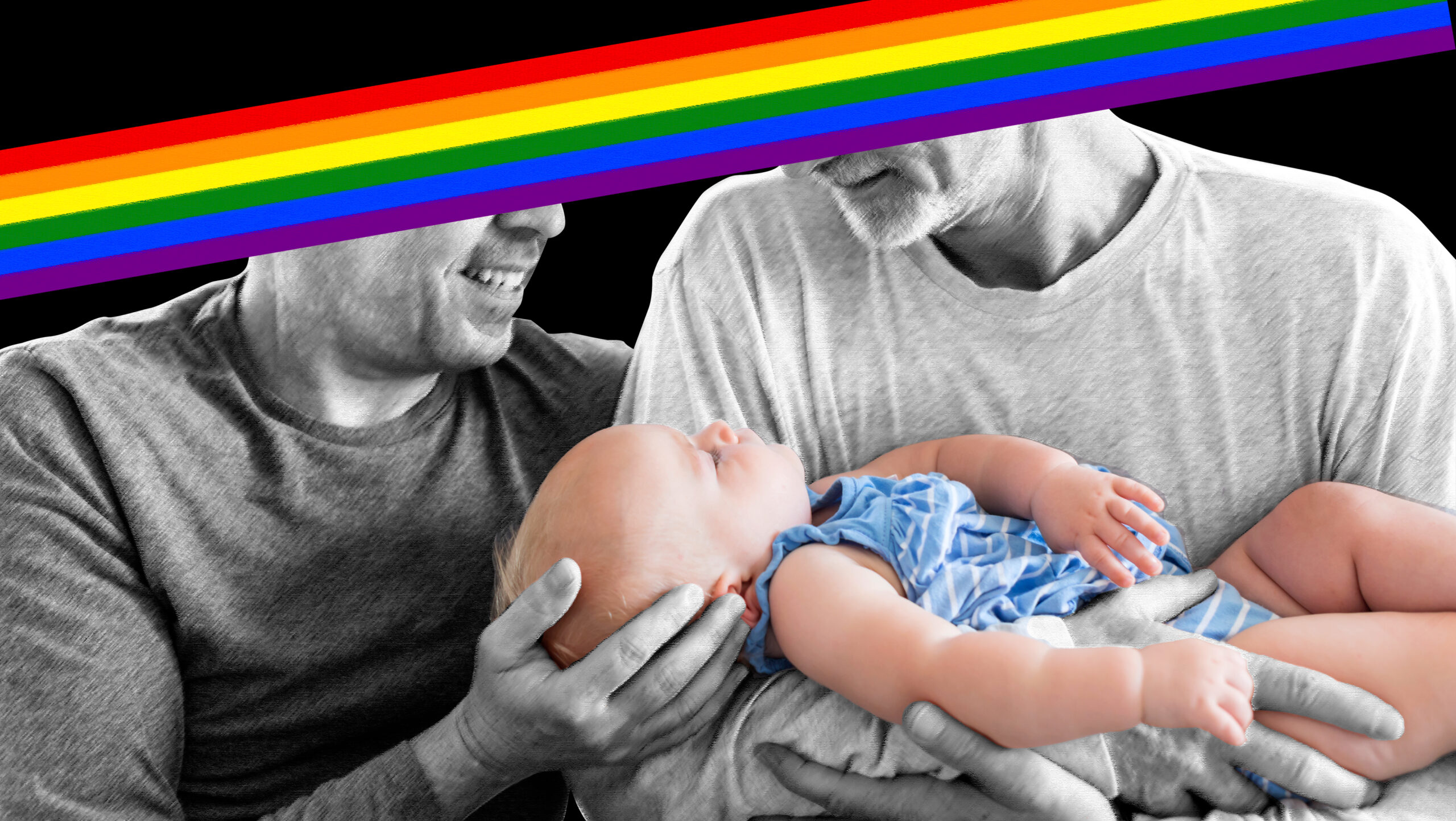To get Xtra Weekly in your inbox, subscribe here.
WEEKLY EXPLAINER
An American gay couple is fighting for their daughter’s citizenship. The parents are both citizens of the United States, but the government says their baby is not.
Here’s the background James Derek Mize and his husband, Jonathan Gregg, are both American citizens. Mize was born and raised in the US, while Gregg was born in Britain to an American mother. The couple met in New York in 2014 and got married the following year. They wanted a child and their close friend agreed to be their surrogate. Their daughter, Simone, was born at a British hospital in 2018. After obtaining her birth certificate, the couple applied for Simone’s US citizenship last month. However, to Mize and Gregg’s surprise, the application was denied.
The US government says Simone can’t become a citizen of the country because she was conceived through surrogacy using Gregg’s sperm and, although he’s American, Gregg spent most of his life in Britain. According to the government, Gregg didn’t live in the States long enough in order for his US citizenship to be transferred to Simone.
But why? Here’s the thing: before the legalization of same-sex marriage and advances in reproductive technology, the US implemented a law requiring proof of a biological connection in order for citizenship to be covered under the Immigration and Nationality Act of 1952.
The policy outlines that a child born abroad must have a biological connection to an American parent who has spent at least five years in the US in order to receive citizenship at birth. This is a non-issue when the baby is conceived the traditional way, but becomes a problem when only one person in the couple is the genetic parent of the child, as in the case of Mize and Gregg.
In an interview with The New York Times, John C Eastman, a senior fellow at a conservative think tank in California, says the proof of biological connection is necessary in order to avoid people committing fraud by claiming they are children of American citizens when, in reality, they are not.
Right now, the State Department classifies birth through assisted reproductive technology, like surrogacy and in vitro fertilization, as “out of wedlock.” This identification is used when the source of the sperm and the egg does not match the married parents. During Barack Obama’s administration, the US State Department adjusted the requirement so that parents could establish a biological connection by giving birth to the child.
Okay, cool, but how does this policy affect LGBTQ2 people? When the policy was adjusted under the Obama administration, it meant that a lesbian couple could have a child “in wedlock” if one of them provides the egg and the other carries the baby. But that’s not an option for two cisgender men like Mize and Gregg.
In The New York Times interview, law professor Scott Titshaw says the policy represents a “mismatch” of immigration and family laws. He says the policy “Runs counter to the current societal understanding of what marriage is . . . and the current legal definition of what parentage is.”
Mize and Gregg’s situation is not unusual. Although there are no data outlining the exact number of people affected by the policy, similar cases have been reported over the years. For instance, there’s a gay couple who had twins in Canada using each of their sperms — one of the fathers is Israeli and the other, American. The biological son of the American father was granted citizenship while the other child, the biological son of the Israeli father, did not. In February, a US judge sided with the parents and called the State Department’s policy “strained.” The department has since filed an appeal.
Another case involves a lesbian couple in London. One of them is American and the other Italian. In this case, the couple didn’t use a surrogate — each one carried and gave birth to a child. Of the couple’s two children, only the one born to the American mother received US citizenship. A federal judge allowed the mothers’ case to proceed last week, calling the family’s situation “terrible” and “outrageous.”
What now? The US State Department insists officers carefully investigate all cases, regardless of the parents’ sexual orientation. However, LGBTQ2 advocates say the policy has a particular impact on same-sex couples.
Last week, The Daily Beast interviewed Adiel and Roee Kiviti, a married gay couple who are experiencing the same dilemma after the US government denied citizenship to their child who was born through surrogacy in Canada. Adiel and Roee are both Israeli and became American citizens through naturalization. However, the government refuses to grant citizenship to their daughter because she was conceived using Adiel’s sperm, and Adiel hadn’t spent five full years in the US by the time of his child’s birth.
In the interview, Adiel said, “[The government] basically takes our marriage, and they say ‘It doesn’t mean anything. Your child was born out of wedlock.’”
“We were there when she was born, she took her first breaths in our arms. Make no mistake: We are her parents — we are her only parents on her only birth certificate.”
For Mize and Gregg, the only thing they can do is travel back and forth to Britain with Simone. But this is as a temporary fix because Simone only has a tourist visa, so staying in the US indefinitely is not an option. Mize says he worries the constant travelling might negatively affect their daughter.
“Our daughter can’t be here, but she has no one else to care for her.”
WORLD AT A GLANCE
It’s truly redundant at this point. Chick-fil-A bill reignites LGBTQ2 opposition in Texas.
A former Indiana Republican says Mayor Pete Buttigieg must prove he’s not “too gay.” To do this, he advises, the presidential candidate should denounce fisting and rimming. Okay sir, this is a Wendy’s.
Bigot Betty. A Virginia politician compares marriage equality to slavery.
Rejecting reality. Some Polish towns pass a motion to reject what they view as “LGBT Ideology.”
Taiwan is furious after China attempts to take credit for the country’s decision to legalize same-sex marriage. Uhmm, not everything is made in China.
QUEER CONTENT ROUNDUP

- Arthur creator Marc Brown says he’s disappointed after Alabama Public Television decided not to air the show’s gay wedding episode. [PinkNews]
- It’s LGBTQ2 film festival season! We’ll help you decide what to see at Toronto’s Inside Out film festival based on your personality. [Xtra]
- Drag Race queens’ disappearing acts. Some RPDR alumni are cancelling tour dates and fans say it’s a sign All Stars 5 is coming v soon. [Queerty]
- Speaking of RPDR, Drag Race royalty Alyssa Edwards and Alaska judge a speedo contest on The Bachelorette. [YouTube]
- Here’s an adorable proposal caught on tape — and both women are dressed in superhero costumes! Love saves the day! [Facebook]



 Why you can trust Xtra
Why you can trust Xtra


